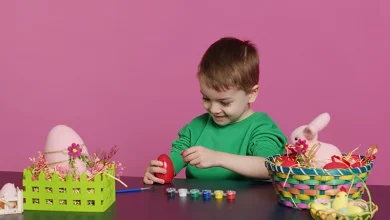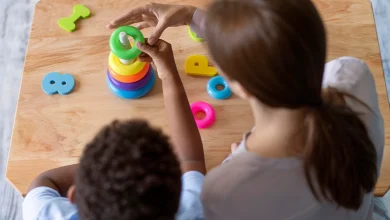Navigating Tough Conversations During Parent-Teacher Conferences

Navigating Tough Conversations During Parent-Teacher Conferences
Parent-teacher conferences are an essential part of supporting your child’s growth and learning. These meetings provide a valuable opportunity for parents and teachers to connect, share insights, and collaborate on the best ways to support your child’s development. However, not every conference is easy. Sometimes, tough conversations are necessary—whether it’s discussing academic challenges, behavioral concerns, or social struggles.
Navigating these conversations can feel daunting, but with preparation and an open mindset, they can become productive opportunities to enhance your child’s experience. This article explores how to handle these moments with confidence and care.
Why Tough Conversations Happen
Parent-teacher conferences focus on child development, covering not only academic progress but also emotional, social, and physical growth. Challenges may arise in any of these areas, and teachers might feel obligated to bring up sensitive topics. Some common reasons for difficult discussions include:
- Behavioral concerns: Difficulty following rules, frequent conflicts with peers, or lack of focus in class.
- Learning challenges: Signs of delayed development in literacy, numeracy, or other skills.
- Social struggles: Difficulty making friends or participating in group activities.
- Classroom dynamics: Issues with adapting to structure or working within the school environment.
Preparing for a Tough Conversation
The best way to approach any parent-teacher conference—especially one involving potentially tough feedback—is by preparing ahead of time. This preparation sets the stage for a constructive conversation and signals to the teacher that you’re open to collaboration.
1. Reflect on Your Child’s Behavior and Development
Before the conference, take time to reflect on your child’s behavior at home and in social settings. Are there patterns or challenges that you’ve noticed? Understanding your child’s strengths and struggles allows you to engage meaningfully in discussions.
2. Come Prepared with Questions
Having a list of questions ready for your parent-teacher conference can keep the conversation focused and show that you are invested in understanding your child’s progress. Some helpful questions include:
- “What strengths do you see in my child?”
- “Are there specific moments when you notice my child struggling?”
- “How does my child interact with peers in group settings?”
- “What strategies do you suggest for addressing these challenges at home?”
- “How can I support your efforts in the classroom?”
These types of questions align with the advice in our previous blog about questions to ask at parent teacher conferences. If you want even more ideas for questions, check it out!
3. Review Classroom Policies and Curriculum
Understanding the school’s expectations and the classroom environment will help you better contextualize feedback. This knowledge allows you to differentiate between challenges related to your child’s personality or development and those influenced by external factors.
Strategies for Navigating Difficult Feedback
Receiving constructive feedback about your child can be emotional. Here’s how to stay grounded and turn tough conversations into valuable learning moments.
1. Listen Without Judgment
When a teacher shares feedback, resist the urge to interrupt or defend your child immediately. Instead, listen carefully and take notes if helpful. This approach helps you process the information fully and shows the teacher that you respect their perspective.
2. Ask Clarifying Questions
If you don’t understand something or need more details, don’t hesitate to ask. For example:
- “Can you provide an example of when this behavior occurred?”
- “Have you noticed any changes over time?”
- “What strategies have you tried in the classroom to address this?”
These questions show that you’re invested in finding a solution and allow you to gain a clearer picture of the situation.
3. Acknowledge the Teacher’s Efforts
Teachers work hard to create positive learning environments and often spend a lot of time observing each child. They’re also great resources to learn more about child development and milestones by age. Acknowledging their efforts can help diffuse tension and build rapport. For example, you might say, “I appreciate you bringing this to my attention and taking the time to address it.”
4. Focus on Collaboration
Approach the discussion as a partnership rather than a confrontation. Use language that signals you’re on the same team, such as:
- “How can we work together to support my child in this area?”
- “Are there additional resources or specialists you recommend?”
- “What’s the best way for me to stay updated on progress?”
Turning Challenges into Opportunities
While tough conversations can be uncomfortable, they often lead to meaningful growth for both the child and their support system. Use the feedback to identify actionable steps and create a plan with the teacher to address any concerns. For example:
- If your child struggles with focus, consider implementing a structured daily routine at home to reinforce classroom expectations.
- If behavioral concerns arise, work with the teacher to identify triggers and develop consistent responses.
- If social challenges are discussed, arrange playdates or role-play social scenarios to build confidence.
Collaborating with the teacher and taking proactive steps at home creates a unified approach to your child’s development.
Follow-Up After the Conference
The parent-teacher conference shouldn’t be the only touchpoint between you and the teacher. After the meeting:
- Review the Notes: Go over any notes or action items discussed during the conference and share them with other caregivers to ensure consistency.
- Communicate Regularly: Stay in touch with the teacher to monitor progress. A quick email or check-in can reinforce your commitment to supporting your child.
- Celebrate Wins: As your child works through challenges, celebrate their progress—no matter how small. Positive reinforcement boosts confidence and motivation.
Final Thoughts
Navigating tough conversations during parent-teacher conferences is never easy, but it’s an essential part of supporting your child’s growth. By preparing thoughtfully, listening with an open mind, and focusing on collaboration, you can turn challenging discussions into opportunities for meaningful progress. Remember, both you and your child’s teacher share the same goal: helping your child thrive. With clear communication and a willingness to work together, you can create a strong foundation for your child’s success.
Don’t stop here! Keep reading!
- What is Social Emotional Learning?
- How to Teach Social Skills to Your Preschoolers
- Questions to Ask During Your Next Parent-Teacher Conference
- Behavioral Problems at School: What Parents Need to Know





